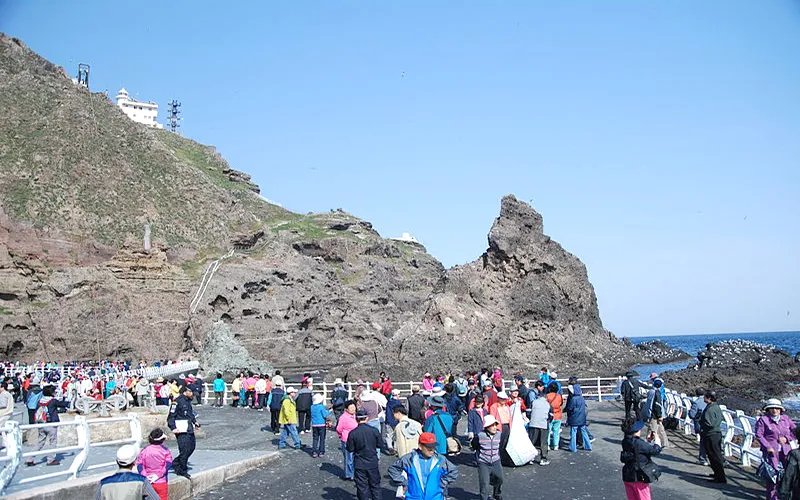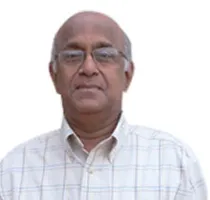-
CENTRES
Progammes & Centres
Location
Historical issues straining Japan-Korea ties have severely limited the two countries to leverage their strategic and economic convergences to strengthen their partnership which could contribute a lot for regional peace and stability.

In recent years, both Japan and the Republic of Korea (ROK) have allowed their relations to be strained by historical issues like the Yasukuni shrine, comfort women, text books, and the territorial controversy on the tiny Takeshima (Dokdo) island that lies in the Sea of Japan which South Korea calls East Sea. In that process, they have failed to leverage their strategic and economic convergences to strengthen their partnership which could contribute a lot for regional peace and stability.
Unfortunately, the UNESCO has now become the latest battleground for their bickering on the question of granting heritage status to certain historical sites in JapanAs a country with an avid interest in its cultural heritage, Japan had applied last year to the UNESCO for its approval of certain pre-war industrial facilities as world heritage sites. While submitting its application, Japan contended that these facilities represented the earliest efforts of industrialisation made by Japan after the Meiji Restoration of 1868. These 23 facilities located in eight of Japan's 47 prefectures were considered as pioneering sites in Japan's industrial revolution that took place in the second half of 19th and the early years of the 20th centuries. As is well-known, Japan's early industrialisation not only became a source of inspiration for numerous Asian countries, which were then under colonial rule, but also propelled it to emerge as an imperial power on the lines of many Western countries. The accompanying picture shows how a small island Hashima near Nagasaki was developed into a major industrial facility.
On 4 May 2015, the UNESCO Advisory Panel recommended world heritage status to the Japanese monuments and it has to be finally endorsed by the 21 member World Heritage Committee which will meet at the end of June under the chairmanship of Germany. But the reaction of South Korea, a member of the World Heritage Committee, to the decision was quick and bitter. The Korean foreign office stated that nearly sixty thousand Koreans were forcibly recruited to work in at least seven of the above facilities during the Japanese colonial rule from 1910-45 and urged the UNESCO to drop these sites from the list. A Korean foreign office spokesperson further complained that the UNESCO's decision "runs contrary to the fundamental spirit of the World Heritage Convention to glorify and register the sites related to industrialisation while ignoring the fact that they were the sites of forced labour." On 4 May itself, the Foreign Affairs Committee of the Korean Parliament adopted a resolution condemning Japan's bid for the UNESCO recommendation.
In the meantime, China also expressed its strong opposition to the UNESCO decision because of the involvement of massive Korean and Chinese forced labour. China stressed that the world heritage application should contribute to the principle of building peace in the minds of men and women as upheld by the UNESCO. It feared that the decision of the UNESCO would only be tantamount to glorifying the colonial history.
To many close observers, China's support to South Korea did not come as a surprise since it has been using Seoul's estrangement with Japan for its own diplomatic gains. Both have worked rather closely in organising an anti-Japan campaign in matters of historical issues.
From the beginning, Japanese Prime Minister Shinzo Abe evinced considerable interest in the subject and sought to have the approval of many member countries of the UNESCO including South Korea. Indeed, he asked Mr Takeo Kawamura, Secretary General of Japan-Korea Parliamentarians' Union, to pursue the matter with the Korean lawmakers during his upcoming visit to Seoul on 10 May. At the same time, the Japanese Ministry of Foreign Affairs started making efforts to underscore that Seoul should set aside its objection in the larger interests of bilateral relations. However, both sides agreed to hold a working level official meeting on 22 May.
In the meantime, both sides became quite active in lobbying for their respective causes. Japan launched a vigorous diplomatic drive by sending its senior officials to fifteen of the twenty one member countries to seek support for the UNESCO's recognition.
Not to lag behind, South Korea was equally bent on carrying on its campaign and when Irina Bokova, Director General of the UNESCO, was in Seoul on 19-20 May, in connection with an international conference, both South Korean President Park Gyun-hye, and Foreign Minister Yun Byung-se conveyed their strong opposition to her.
President Park told Bokova that UNESCO's decision to endorse the Japanese sites ignoring the "inhumane forced labour" would deviate from the philosophy of the Convention concerning the protection of the world cultural and natural heritage. The UNESCO Chief while understanding Korea's strong sentiments on the issue advised the two countries to resolve it through dialogue.
Though an opportunity for dialogue did occur on 22 May when the officials of both Japan and South Korea met in Tokyo, differences continue to persist. In a bid to find a solution, Korea asked Japan to either remove from the listing those facilities which involved forced labour or to make a clear description in the sites that Koreans were forced to work in those facilities. But this suggestion was unacceptable to Japan which argues that Japanese industrialisation occurred much before 1910 when Korea became a colony of Japan. Given the strong positions taken by both countries, and the relentless lobbying done by them, it is not going to be easy for the World Heritage Committee to make up its mind when it meets at the end of this month.
Many commentators in both Japan and South Korea now fondly wish an early end to this unfortunate controversy at a time when they are poised to celebrate soon the 50th anniversary of the normalisation of their diplomatic relations.
(The writer is a Distinguished Fellow at ORF, New Delhi)
The views expressed above belong to the author(s). ORF research and analyses now available on Telegram! Click here to access our curated content — blogs, longforms and interviews.

K.V. Kesavan (1938 2021) was Visiting Distinguished Fellow at ORF. He was one of the leading Indian scholars in the field of Japanese studies. Professor ...
Read More +